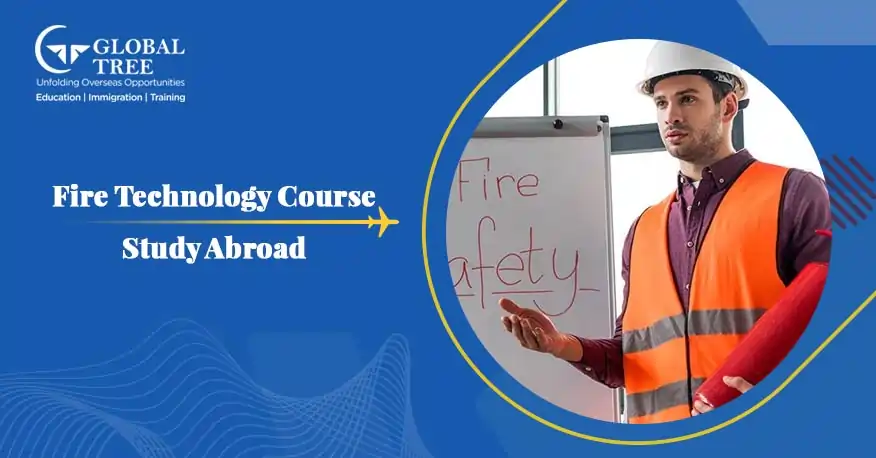All about Fire Technology Course to Study Abroad

Introduction
For those who are or will be leaders in fire protection, prevention, and administration, a fire technology curriculum offers advanced training and education. Effective fire technologists continuously make our environment a safer place while minimizing the suffering that uncontrolled fire can bring.
The practical knowledge and abilities required to safely and effectively prevent, combat, and investigate fires are the main focus of the Fire Technology programme. Through their knowledge of fire prevention and control, firefighters, fire code inspectors, and fire investigators safeguard lives and property. The National Fire Protection Association's professional criteria will be met by students who take Fire Technology. Choose the Best Fire Technology Course & Colleges to Study Abroad.
Who is eligible to study Fire Technology Course Abroad?
When you grew up, were you the kid that aspired to work as a firefighter? A job in fire technology is a wonderful fit for you if you excel at making split-second judgements, maintain composure under pressure, and work well in a team environment. Your preparation for a career in firefighting and fire prevention is the goal of Fire Technology.
How much does it cost to study Fire Technology Course Abroad?
A degree in applied science from an associate's programme enables students to enter the workforce sooner. Before pursuing a fire science bachelor's degree, students frequently pursue this degree. It is intended to aid students in understanding fire causes, how to put out fires, how firefighting teams operate, and much more. The average cost of tuition for the two-year, fire technology associate degree curriculum, which prepares you for a specific job in the fire services, is $20,040.
Another option is to carry on with your studies in order to obtain a bachelor's degree abroad. Your chances of landing a managerial role can be increased by selecting a degree programme that is narrowly focused. You will be more prepared for administrative responsibilities if you are familiar with the commercial and strategic components of the fire service.
What is the Future Scope of Fire Technology Course Abroad?
The demand for new housing projects increases along with the population's ongoing growth. The National Fire Protection Association (NFPA) recorded over 400,000 structural fires in 2019 that cost nearly $12 billion in damages, despite advances in fire technology.
The CTIF World Fire Statistics Centre estimates that a startling 41,700 people have perished as a result of fire between 1993 and 2018. 204,525 fires were reported in the UK in only 2018 alone. Fire engineers were brought into the fight to prevent or, at worst, lessen the harm inflicted to buildings and society in the case of a fire in order to assure the preservation of life and property.
In May 2021, the yearly average pay for fire technologists will be $65,555. The predicted increase in employment is 8% between 2020 and 2030. Additionally, it is predicted that there will be 21,000 employment openings for fire inspectors during the next ten years.
(Read more:list of best places to study higher education abroad)
Trending Career Options in Fire Technology Course Abroad
For those who want to pursue a career in fire technology, there are several different job possibilities to consider.
Career as a Firefighter
Driving fire engines, extinguishing flames, and saving people from fires and other crises are all tasks assigned to firefighters. The average yearly wage for firemen, according to the US Bureau of Labour Statistics (BLS), is $50,850.
Career as a Provider of Emergency Medical Services
Before patients arrive at the hospital for additional care, those who operate in this position assist them with acute care and transportation. EMS professionals earn $35,400 on average yearly.
Career as an Engineer in Fire Protection
Fire prevention engineers examine structures and building plans to find potential risks in an effort to reduce the likelihood of fires in the first place. This profession pays an average yearly wage of $85,000.
Career as a Public Safety Telephone
First responder efforts are supervised and coordinated by public safety telecommunications (emergency dispatchers). This career pays an average yearly salary of $44,310.









